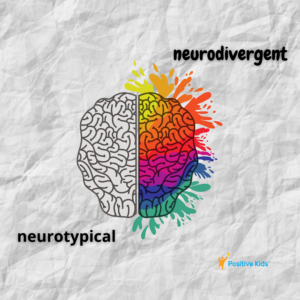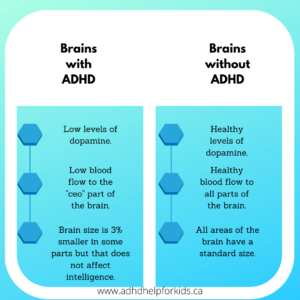By, Fatima Malik
I remember as a student, being very good in some subjects while others were just a drag.
As I grew older, I realized it was the subjects that were fun to learn that I was good at, and it wasn’t so much about interest as it was about how fun the teacher made the learning experience.
To begin with, I wasn’t a great student, but that too turned out to be an attention issue rather than an intelligence issue.
Failing a course, I took three years to study versus the one I aced after only three months of study; the difference? The teaching style.
What? Are you telling me I didn’t make it to an elite university because of something that wasn’t even in my control?
Yes, that’s exactly what I’m telling you, and yes, I am aware I am answering my own questions, but what else did you expect from a writer’s brain?

For a child with ADHD, the motivation or lack thereof is more complex and often misunderstood. Students with ADHD often struggle to turn on and tune in to schoolwork they find less captivating.
It is less an attitudinal problem but more closely tied to the neurobiology of the ADHD brain and how it perceives challenges.
The ADHD Brain
The ADHD brain essentially has low blood flow to the ‘ceo’ (prefrontal cortex) part of the brain. That means that if the brain is a truck with a driver, the driver (prefrontal cortex) is unaware of the truck’s full potential (the rest of the brain). The driver is driving the truck without fully understanding the truck’s workings. The truck tries to communicate with the driver, but the radio signal (blood flow) is partially blocked.
The communication is broken; therefore, any decisions the driver makes are impaired, causing an impulse problem and a lack of understanding of consequences and not being able to effectively plan ahead.

So what is Motivation?
Motivation is the reason behind our actions. Why we do something or take a particular action.
Motivation has a hierarchy. It starts from our basic needs, like safety, nutrition, sleep, etc. Once our basic needs are being met, we move on to other desires on our hierarchy that motivate us to achieve a particular lifestyle and quality of life.
Among the most critical needs for students with ADHD are safety and esteem, including security, confidence, feelings of achievement, and respect.
Students with ADHD are more likely than their neurotypical classmates to encounter challenges in their school learning. They may be less likely than their peers to experience success — which strengthens self-esteem and increases motivation.
Additionally, the brain of a child with ADHD has difficulty storing and recalling past success experiences when they happen.
Neurologically speaking, fear and failure leave a bigger footprint than success in the memory of a child with ADHD. This causes additional challenges to achieving high self-esteem and confidence.
Over time, with the lack of achievements (and the lack of memory of the successful ones), children with ADHD build on their negative experiences of repeated failures, leaving them with feelings of incompetence.
The ADHD brain, as it latches on to these bad experiences, recalibrates and tries to protect itself. As a result, many students with ADHD eventually develop an “I can’t” mindset, which has a negative impact on thinking and motivation as they grow older.
Their history of failure primes them to assume that any new task is too complex and therefore stressful. And stress gets in the way of effective learning.
This reactive response, reinforced by an “I can’t” attitude and low self-esteem, causes students with ADHD to perceive academic environments as unsafe and threatening.
People (and animals as well) who do not feel safe and secure do not learn well. It’s easy to see why students with ADHD may not experience success as often as other kids.
The best way to tackle these motivation issues and feelings of incompetence is to understand where they begin.
They begin with fear. Going back to our basic needs, safety is a big one. If a student with ADHD does not feel safe, their protective instincts will kick in, and they will most likely “shut down,” especially if they can not “escape” a situation that their brain has deemed dangerous.
It’s important to understand that children with ADHD do not feel safe most of the time. Compared to their neurotypical peers, there is way more anxiety and stress in their day-to-day otherwise ‘normal’ tasks.
So first and foremost, it is essential to have the child with ADHD be aware of their condition and how it affects them. Give them the confidence to be able to talk about it with teachers and peers without shame.
Additionally, parents need to make sure that the school is fully aware of their child’s ADHD and have the child’s doctor talk to them as well.
It’s very critical for a child with ADHD to get psychological help to curb the effects of failures causing a lack of confidence and feelings of incompetence. So they can go into adulthood fully aware and prepared for the impact of their neurodivergent brain.
Need help parenting a child with ADHD? Call us at 1-866-503-7454

